“It was the most important thing I’ve ever done in my lifetime.”
Alison Arends
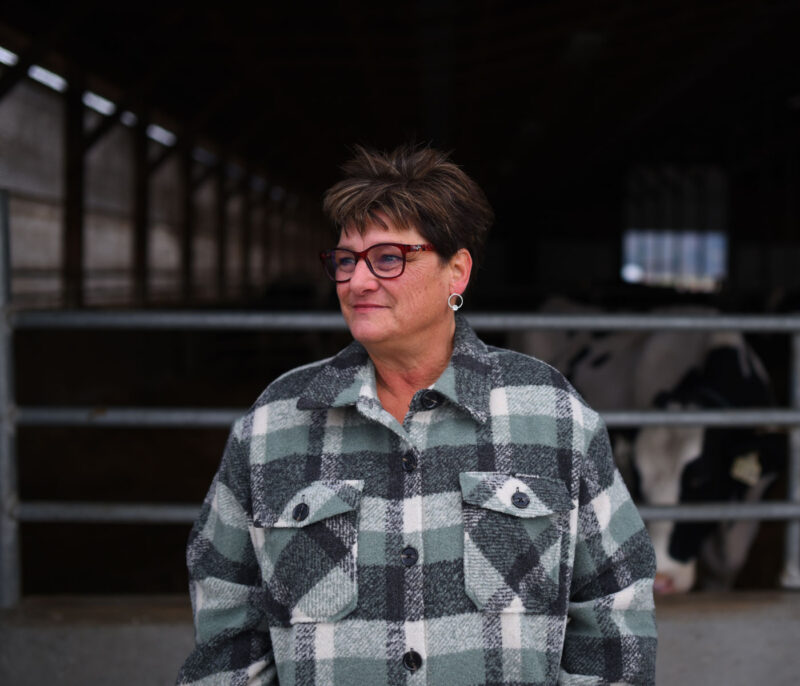
Alison spent much of her life on a busy dairy farm in the Sumas Prairie, an agricultural community that blankets the basin of a former lake. “It’s a tranquil place to be,” says Alison, “Even with the smell of manure all around.” She moved to the farm when she married her dairy farmer husband, John, and quit her various jobs as nanny, cleaner, and vacuum salesperson to do all the running around required by a cattle operation.
Now the family operation includes the next generation: her two sons help their father manage the dairy farm, while her daughter manages the hay farm.
Alison’s life had grown much quieter since she moved to a property a block away from their dairy farm. She filled her days looking after her grandchildren while they’d ride their bikes or fake crashes so their play tow truck could come to the rescue. “Thank goodness for grandkids,” says Alison. “I was bored.”
But all that changed when the rains came. It was November and a patchwork of cover crops blanketed the fields. “It was beautiful. It was long, it was green. It was lush,” says Alison. “And then, it was gone.” Soon, she was pouring her time and energy into running a community hub for flood survivors.
The amount of rain was something I’ve never seen before. I was outside and heard the sirens going from Sumas, Washington. My husband went out with his truck and trailer, as did my boys. They were rescuing animals from barns. My brother-in-law’s farm flooded. So they spent the day bringing his cows to our place. The south side of the dike was flooding. You could see rats swimming in the water, everybody’s property items floating around. It got to the point that the trailer full of animals was starting to float. A lot were brought to our place. Our farm was dry.
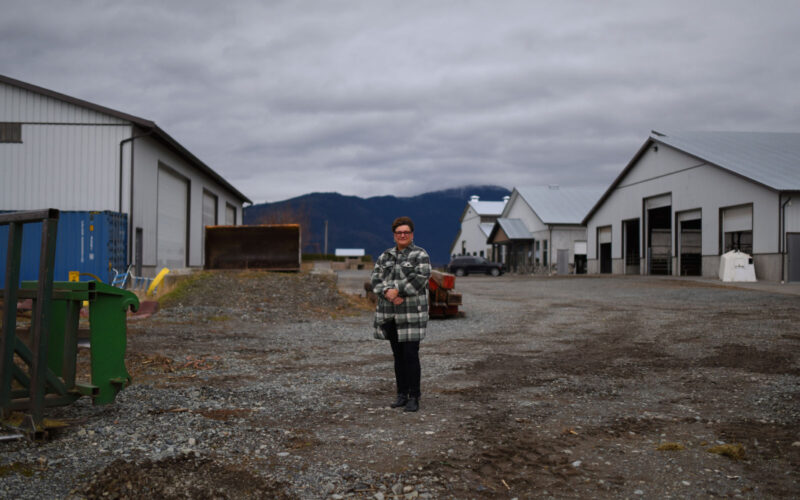
Alison Arends is a survivor of the 2021 atmospheric rivers that flooded southern British Columbia. (CDP Photo/Phil McLachlan)
My in-laws are on the other side of the dike. He was with a walker. She is in a power wheelchair. We can’t get her in a helicopter. We can’t get her to go in a boat. We rescued them from their house on a great big loader tractor. The guys had to maneuver the loader into the garage to get her up. Coming down the road, they had to go around a car that was fully emerged in the water. You could just see the roof floating. We brought them to my house. We felt safe on this side of the dike.
The next day, the Cole Road dike burst which is only one block from me. There’s no sirens. I got no knock on the door. I got no text message, no email, nothing. I wasn’t looking at social media. I was making dinner. My daughter-in-law phoned in tears and said, “It’s catastrophic. You have to get out.”
All the water poured into our field. It’s around my house and going over the road. That’s how fast it came. Everything had to be dropped. All of our belongings thrown into a bin. My mother-in-law and the wheelchair needed to be put in a truck.
There was times we had to stop because there was wood pallets floating across the road. We had to keep an eye on the power poles to know where middle of the road is. It’s pitch-dark. You could see nothing. It was surreal. Like you were in another world.
“It was surreal. Like you were in another world.”
I stay with the in-laws. She needed home care. My husband, hired hands and one daughter-in-law, went back to the farm. It was no easy task to get back. I wanted to be home. I wanted to be there helping.
I got home after five days. It didn’t even look like our Sumas Prairie anymore. Whether you were flooded or not, you were affected. Your eyes could see the devastation. Roads were broken, washed out. People’s memories on the front yards. Everything’s wet. Everything got that greasy stuff on it. Sludge water was sticky and gooey. The smells were horrible. My crawlspace was flooded but nothing compared to so many.
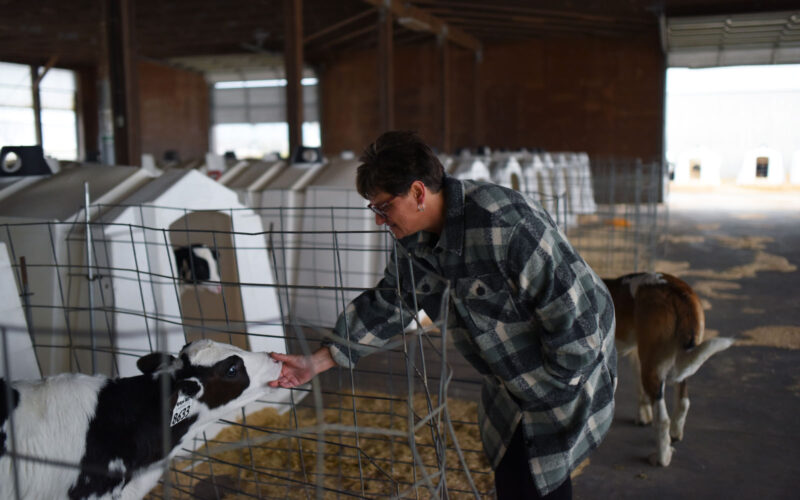
Alison Arends spent much of her life running a dairy farm on the Sumas Prairie with her husband John Arends. (CDP Photo/Phil McLachlan)
After we got back, we were making breakfast for the hired hands. They were going around the clock milking. Now we were milking about nine hundred cows. The farmers need to water to their animals. Big water tankers were brought to our place.
All of a sudden, the trucks were coming. We don’t know who started it. We don’t know how they found out that we were serving. The semi-truck is coming in full of stuff. Our pump room was full of donations. I took over a part of the shop. I was hanging really ugly tarps and blankets around to hide the machinery and the workspace. We had to keep bringing more tables because that’s all I had to put stuff on. I phoned Gateway CRC, the church we attend in Abbotsford. They started bringing hot meals for lunch. Our farmyard just turned into the hub.
These people came in fully devastated. They looked like deer in the headlights. You sit them down. You give them hugs. COVID was out the window. These people needed a hug. They needed to cry. They needed to talk. They needed someone to listen to them. And that’s why we were there. They could come, grab the things they needed. And you just make sure they take it.
“These people came in fully devastated. They looked like deer in the headlights.”
We had diapers, we had canned food. Things for cleaning. Sprayers, mold, and mildew cleaners, bleach, anything to get going. They needed boots. They needed hip waders. It’s November. It’s getting cold. They needed warm hats, warm coats, warm gloves. I said, “This stuff is for you.” “Yeah, but other people had it worse off.” “I don’t care. Here’s a box, we’re going to fill it up.” I started filling it up for them so they felt comfortable enough to fill a box. I said, “Now, that one’s full, let’s fill up another.”
We needed hot food every day for one hundred people. I had food from so many different restaurants and so many different churches. We put in a freezer outside where people could grab ready-made meals. Take it home. Feed your kids. Feed the families you’re staying with.
The volunteers were everywhere: people we deal with on the farm, total strangers. I got donations sent to me from a lady in Fort McMurray who says, “I give it to the little people that are helping on the ground right now because that’s what I needed when I was in the fire. Those are the people that help me.”
I know where help comes from and I know where help doesn’t come from. Your immediate help is the people in your neighbourhood. Everything else is a lot of red tape. Bring on the people in your community that are there to help and help them help others. Because they do. Give to the smaller agencies that are on the ground helping now immediately. When something happens, they are there.
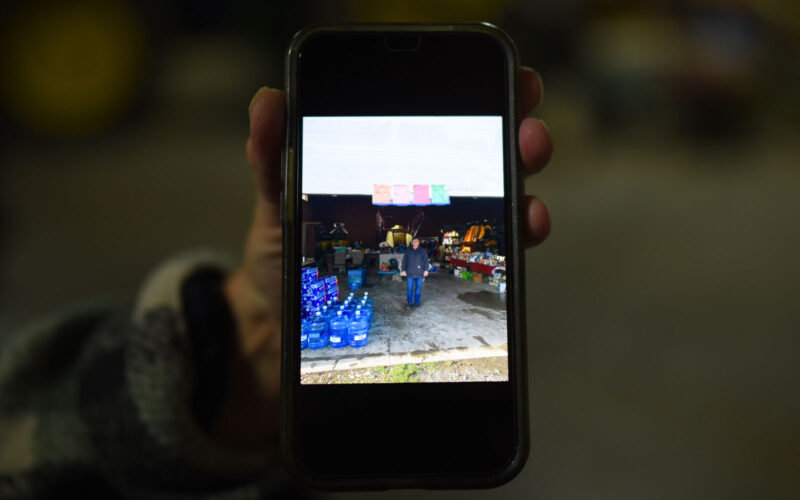
Alison Arends ran a community hub for flood survivors during the 2021 atmospheric rivers that drenched southern British Columbia. (CDP Photo/Phil McLachlan)
It’s been a year and Cole Road, where the dike broke, still closed. There’s people re-flooding on the north side where the big break was. There’s no words. There’s no words. PTSD is very much setting in right now. When it rained at the beginning of this year, little kids are like, “Do we have to leave? Do we have to leave? Are we going to flood, are we going to flood?” These poor kids aren’t even in their own homes yet.
We now have picnics and, as it got colder, dessert and coffee nights for the community at a restaurant close by. That’s their counselling. That’s how we help each other. We plan events every month for the community.
“If there’s a silver lining to this flood, it is community.”
I’m very prone to anxiety, depression. Through the six months of running a hub, I had none of that. It was a complete blessing for me. Is it a God thing? Yes, it is for me. It was the most important thing I’ve ever done in my life. The people we met, the connections I got.
If this ever happens again, I know what I have to do. There’d be a lot more people helping out. If anyone is capable of running something like this, you will never regret it. Never.
This story was originally published in The Fraser Valley Current, on January 5, 2023.
Related Stories
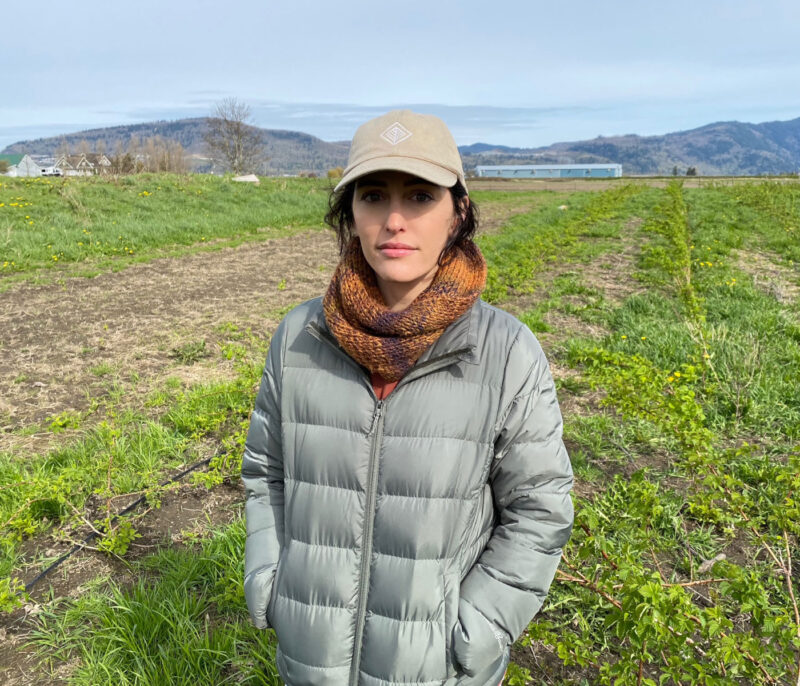
Shoshauna Routley, Abbotsford, Canada
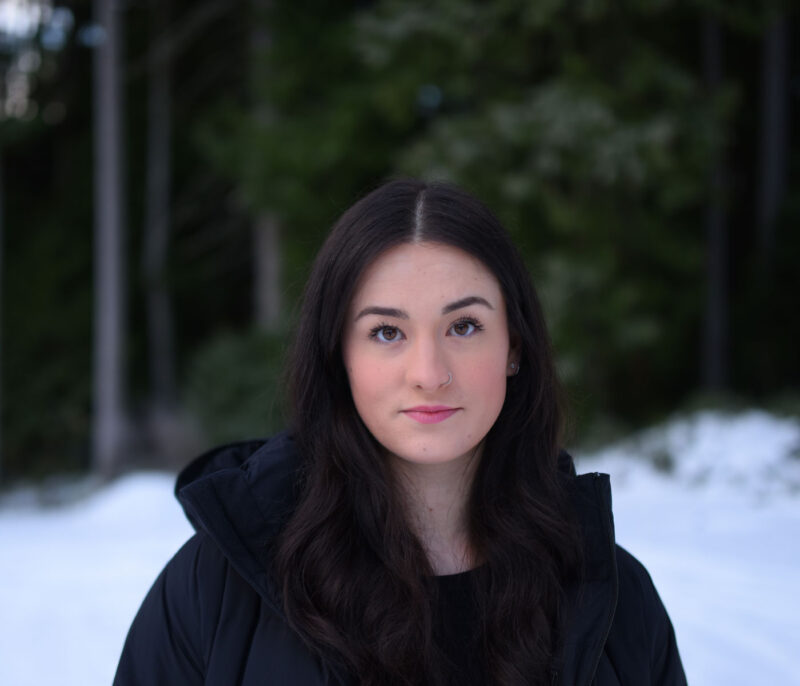
Mikaela Robinson, Hope, Canada
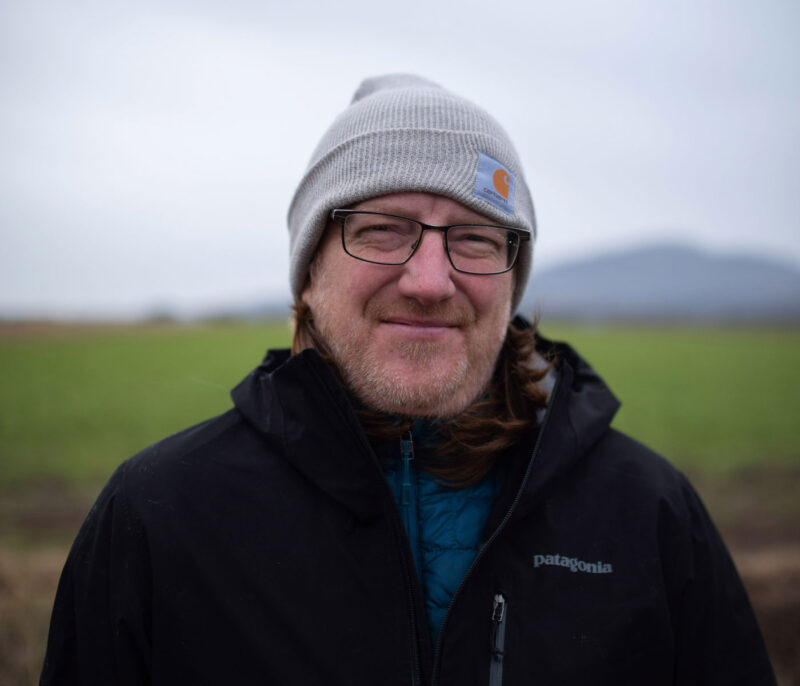
Jordi Williams, Chilliwack, Canada